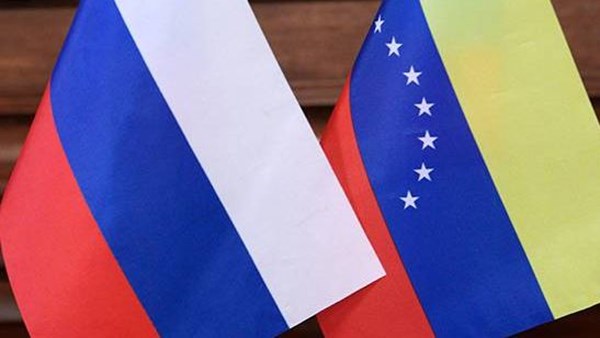Venezuelans transfer $300 million to Russian banks
The amount held by Venezuelan entities in Russian banks grew by 29% to $1.16 billion in the fourth quarter of 2018, according to statistics from the Bank of Russia. Venezuelan companies and individuals transferred $337 million to Russian credit organizations over the three month period.
This increase could be the result of Venezuelans transferring funds from American banks due to the risk of sanctions, observes analyst Dmitry Monastyrshin from Promsvyazbank. “It could be legal entities or physical entities, it could also be trade relations, for example prepayment for goods shipments,” he notes.
“It is quite possible that, fearing the imposition of international sanctions and the freezing of accounts and assets, the largest Venezuelan companies have been trying to transfer a significant portion of their free cash to banks in friendly countries, primarily in Russia,” agrees Mikhail Doronkin, head of bank ratings at the National Credit Ratings.
The US has had sanctions on Venezuelan President Nicolas Maduro and his close circle since summer 2017. The sanction pressure on Caracas was intensified at the start of 2019 in light of the political crisis in the republic.
$300 million is an insignificant sum for Venezuela as a whole, observes analyst Denis Poryvay from Raiffeisen Bank. “Venezuela is a huge country, which has its own oligarchs, and there is obviously much more than $300 million in its reserves,” he explains. The International Monetary Fund places Venezuela’s GDP at $76 billion. According to Bloomberg, the country has in the region of $8.7 billion in foreign currency reserves.
On 1 January 2019, Russian banks owed non-residents a total of $124 billion. Residents of Luxembourg, Ireland and the US each held more than $10 billion in Russian banks, and another 15 countries held more than $1 billion. The remaining $17.3 billion belongs to other countries, or is confidential in nature.
The Russian-Venezuelan bank Evrofinance Mosnarbank operates in Russia. In October 2018, Bloomberg reported that the Russian government had urged Venezuelan banks and companies to use this bank for cross-border transactions.
In March, the US placed Evrofinance on the Specially Designated Nationals and Blocked Persons list. The Treasury Department provided two reasons for the decision: firstly “material support, sponsoring or ensuring the financing” of the Venezuelan state-owned oil company PDVSA, and secondly, facilitating the launch of the Venezuelan cryptocurrency, the Petro. Prior to the sanctions, the bank denied any involvement in the launch of the cryptocurrency.
Statistics on the movement of funds through Evrofinance before the sanctions are available. In the fourth quarter of 2018, 4 billion rubles was received by non-residents’ accounts, and another 5.5 billion rubles was received by its correspondent accounts. No information is available on which countries own these funds. The Russian-Venezuelan bank thus received a total of around $130 million to its non-residents’ accounts (the average exchange rate over the period was 66.5 rubles to the US dollar).
“The figures clearly reflect the ruble’s 6% devaluation in the fourth quarter,” observes Mikhail Doronkin.
Another Russian bank with close ties to Venezuela is the Russian Finance Corporation (RFC). The bank is linked to the Russian defense export agency Rosoboronexport, which has been under US sanctions since April 2018. In March 2019, RIA Novosti reported with reference to two sources that Venezuelan companies’ accounts in Russia would be transferred to the RFC, although the bank itself denied having any information about this. Since September 2018, the bank has stopped disclosing its reports in light of the sanctions. Evrofinance Mosnarbank has also stopped publishing its reports on the Bank of Russia’s website. Its latest published report dates to 1 February this year.
